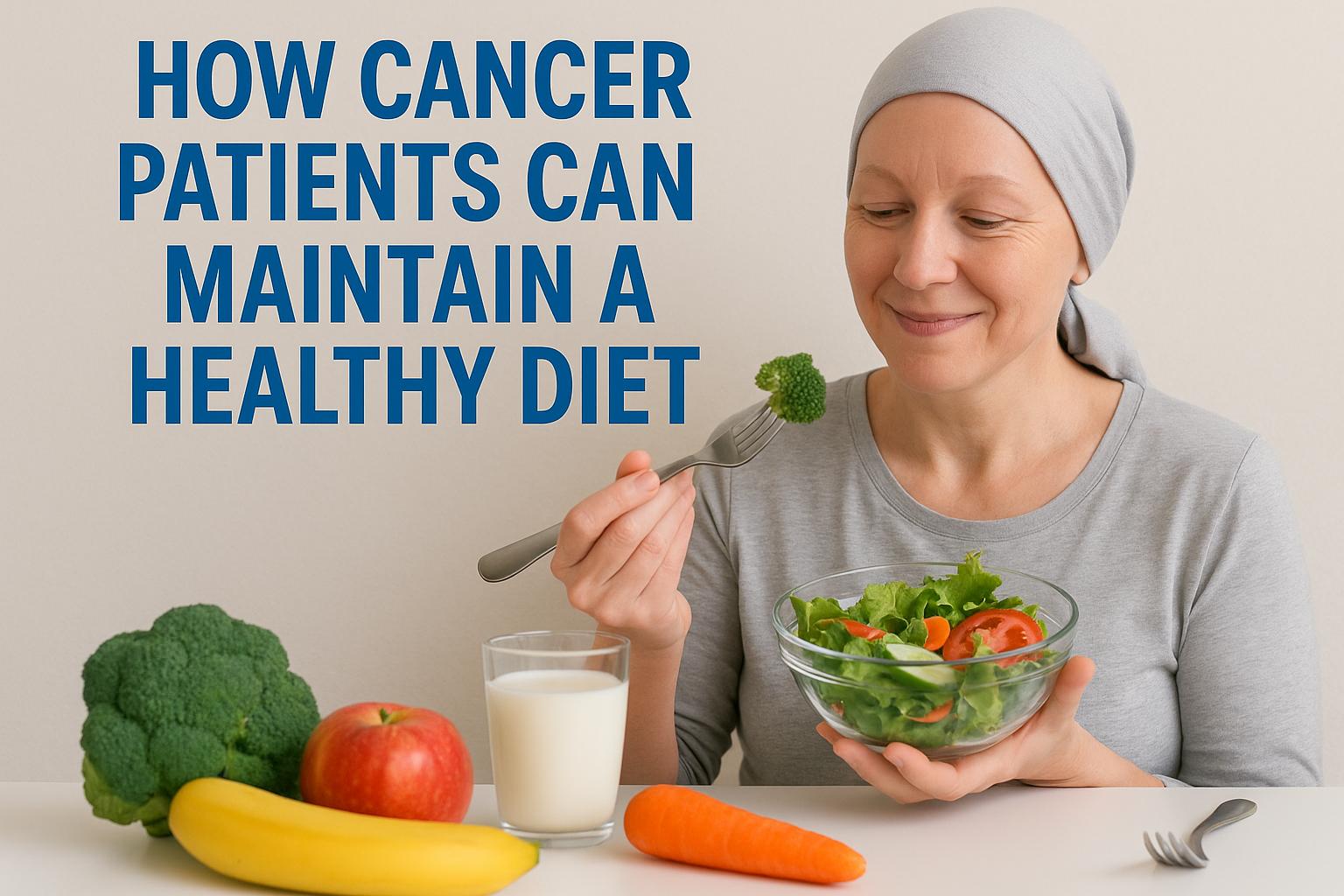Understanding the Nutritional Needs of Cancer Patients
Cancer patients often confront a myriad of nutritional challenges that arise not only from the disease itself but also from the side effects associated with treatments like chemotherapy, radiation, and surgery. Maintaining an optimal diet is a critical component of supporting the body during this rigorous journey. The correct dietary choices can play a pivotal role in managing symptoms, sustaining strength, and enhancing overall well-being.
Consulting with Healthcare Professionals
A crucial step for cancer patients in managing nutrition is collaborating closely with their healthcare team. This team typically includes oncologists and dietitians. These professionals provide guidance tailored to the individual’s unique medical history, current treatments, and specific nutritional needs, ensuring a personalized nutrition plan that aligns with the patient’s treatment goals and overall health status.
Incorporating a Balanced Diet
Creating a balanced diet is essential for cancer patients, focusing on a spectrum of food groups that meet their complex nutritional needs. The following are key components of a cancer patient’s diet:
Proteins: Crucial for the repair of body tissues and maintenance of a robust immune system, proteins should be consumed from a variety of sources. Lean meats, fish, eggs, dairy products, and plant-based proteins such as beans and lentils provide essential amino acids required for recovery and immune function.
Carbohydrates: These serve as the body’s primary source of energy, essential for patients undergoing intensive cancer treatments. Complex carbohydrates like whole grains, fruits, and vegetables offer sustained energy release and are preferable to simple carbohydrates, ensuring a stable energy supply.
Fats: These are another vital energy source and assist in the absorption of certain vitamins crucial for patient health. Selecting healthy fats, such as those found in nuts, seeds, avocados, and olive oil, can support cardiovascular health and reduce inflammation.
Staying Hydrated
Adequate hydration is of paramount importance for cancer patients. Cancer treatments often engender side effects, such as vomiting or diarrhea, which can heighten the risk of dehydration. Consuming ample fluids, including water, herbal teas, and broths, contributes significantly to maintaining hydration. Furthermore, consuming foods with high water content, such as fruits and vegetables, can also be beneficial. Patients should be mindful of their fluid intake as they navigate through treatment.
Managing Treatment Side Effects with Nutrition
Certain dietary strategies may provide relief from treatment side effects, improving patient comfort and nutritional intake:
Nausea: Ginger, whether in tea or food form, along with peppermint tea and small, frequent meals, can mitigate feelings of nausea, making it easier for patients to maintain necessary nutrient intake.
Sore mouth or throat: Soft, smooth-textured foods like yogurt, smoothies, or pureed meals may be more palatable and easier to consume, reducing discomfort during eating.
Fatigue: To combat the fatigue that often accompanies cancer and its treatment, consuming nutrient-dense foods and maintaining regular meal and snack schedules can help stabilize energy levels and enhance overall vitality.
Learn more about nutrition during cancer treatment here.
Avoiding Certain Foods and Supplements
It is equally important for cancer patients to avoid certain foods and supplements that may interfere with treatment efficacy or exacerbate side effects. Engaging in open discussions with healthcare providers regarding the consumption of dietary supplements is recommended to avoid adverse interactions.
Alcohol: Alcohol can exacerbate treatment side effects, impair liver function, and interact negatively with medications, potentially diminishing their effectiveness.
Grapefruit: This fruit has been shown to influence the metabolism of various drugs, potentially leading to increased toxicity or reduced therapeutic effect. Thus, it is advisable for patients to exercise caution with grapefruit intake.
Unwashed produce: Due to the potential for foodborne illnesses, which can pose significant risks to patients with compromised immune systems, ensuring that all produce is thoroughly washed before consumption is essential for food safety.
In conclusion, for cancer patients, a well-rounded and carefully managed diet is a cornerstone of treatment that supports not only nutritional needs but also symptom management and recovery. By working collaboratively with healthcare professionals to develop a tailored nutrition plan, patients can significantly enhance their quality of life throughout and after cancer treatment. A balanced diet, complemented by necessary precautions and adjustments to mitigate the impact of side effects, can empower patients, providing the physical support needed to navigate the challenges of their cancer journey effectively.
This article was last updated on: September 9, 2025

